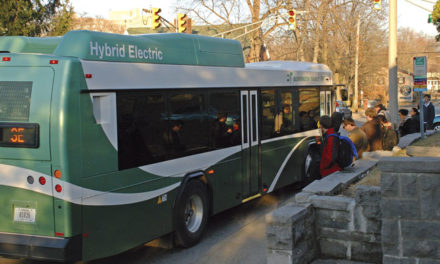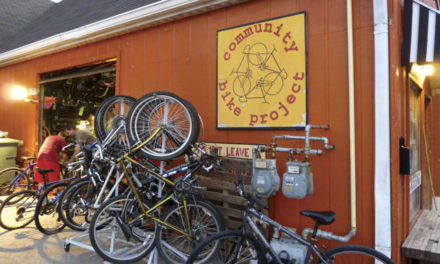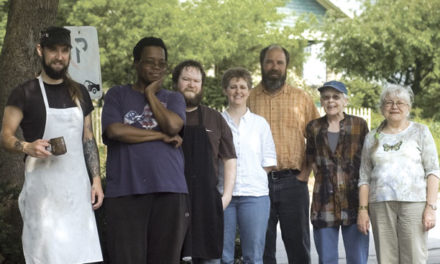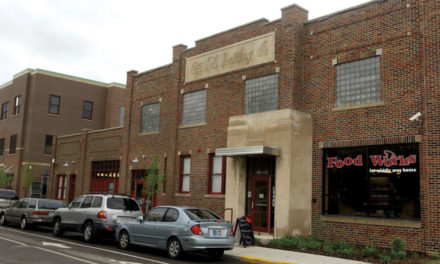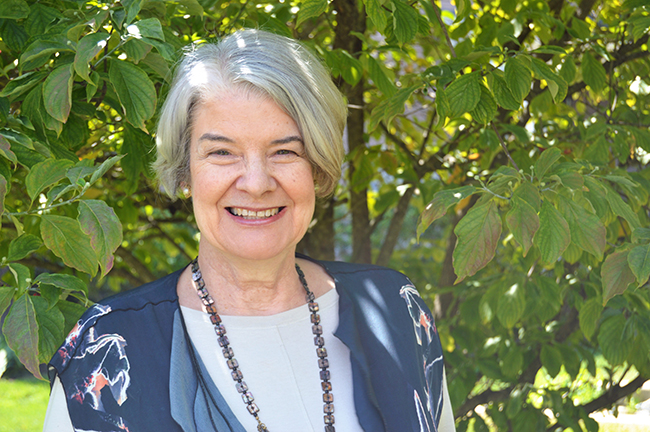
BY CARMEN SIERING
In November 2015, after the terrorist attacks in Paris, Governor Mike Pence announced he was suspending the resettlement of Syrian refugees in Indiana. That didn’t sit well with Frances Trix.
“It gave me negative inspiration,” says Trix. “I went to Macedonia and worked in two transit camps. All it takes is common sense, good knees, and warm clothing. And it helps that I know Arabic.”
Trix is a former Indiana University professor who says she has been surrounded by refugee populations most of her life. She grew up in Detroit, a city full of immigrants. In her 20s, she taught in a village school in south Lebanon. Fluent in French, Turkish, and Albanian as well as Arabic, Trix lived in Kosovo when Slobodan Milošević, known as The Butcher of the Balkans, came to power in 1987, and worked with refugees there after the 1998–99 Kosovo War.
While in Macedonia, Trix worked in the Tabanovce camp in the north and the Gevgelija camp in the south. Her knowledge of Arabic, and her age, were both beneficial.
“In Middle-Eastern cultures, age is respected,” she says. “Where most of the volunteers were in their 20s, I’m in my 60s.” She volunteered to work the night shift for a very practical reason. “The first thing I learned is that refugees are lonely, so if someone can speak the language it helps, especially at night, because that’s when people fall apart.”
This spring, Trix visited Germany to see how that country was handling the arrival of the more than one million refugees it accepted in 2015. To put that in perspective, the United States has accepted fewer than 700,000 refugees since 2005. Despite news reports of some German citizens’ negative reactions, Trix says the average village, town, and city seems to be doing a good job of incorporating the latest arrivals.
“From what I saw in Germany, I’m certain we in Bloomington can do as well,” Trix says. “We certainly don’t need to be afraid.”
Trix points out that nobody wants to be a refugee. “You’ve lost your home and your homeland, usually because of civil war,” she says. What refugees are seeking is what all immigrants to America have always sought — a fresh start.
“These are hard-working people. They want to make a go of it,” Trix says. “AndI think Bloomington is a good place. It’s peaceful. It has good schools. And what refugees are really looking for is a good place to raise their children.”



